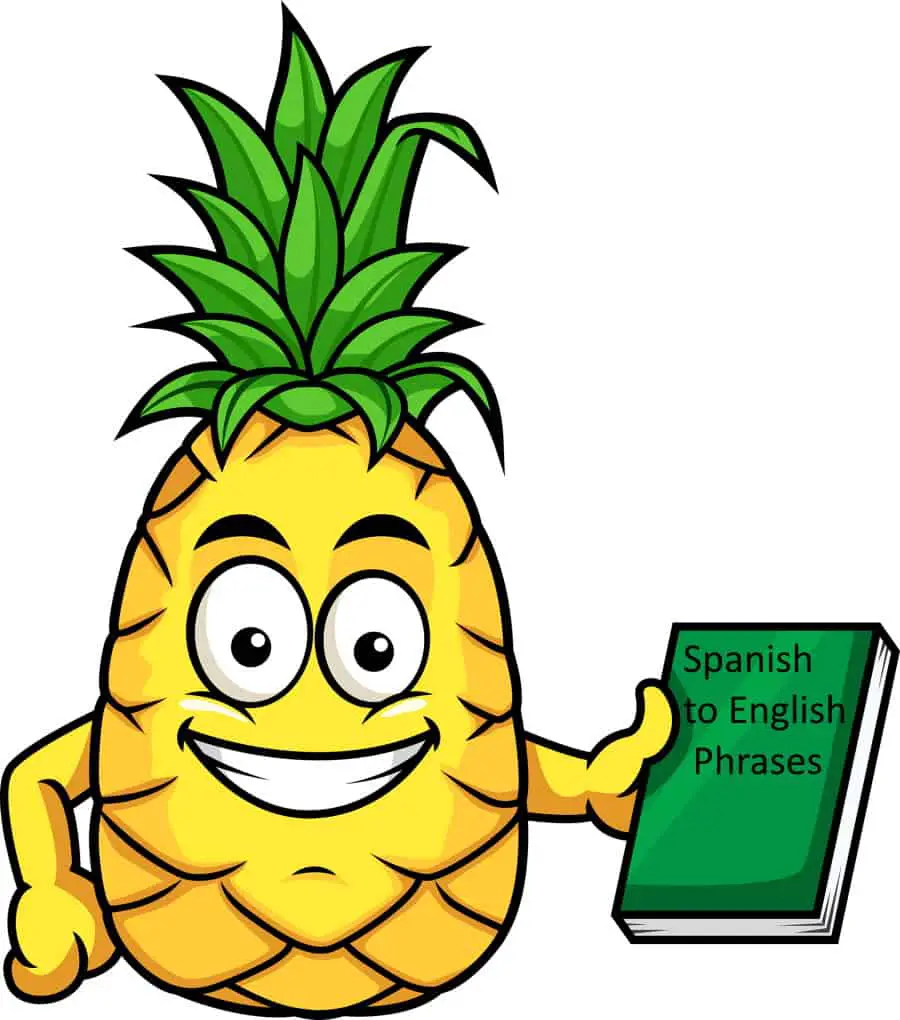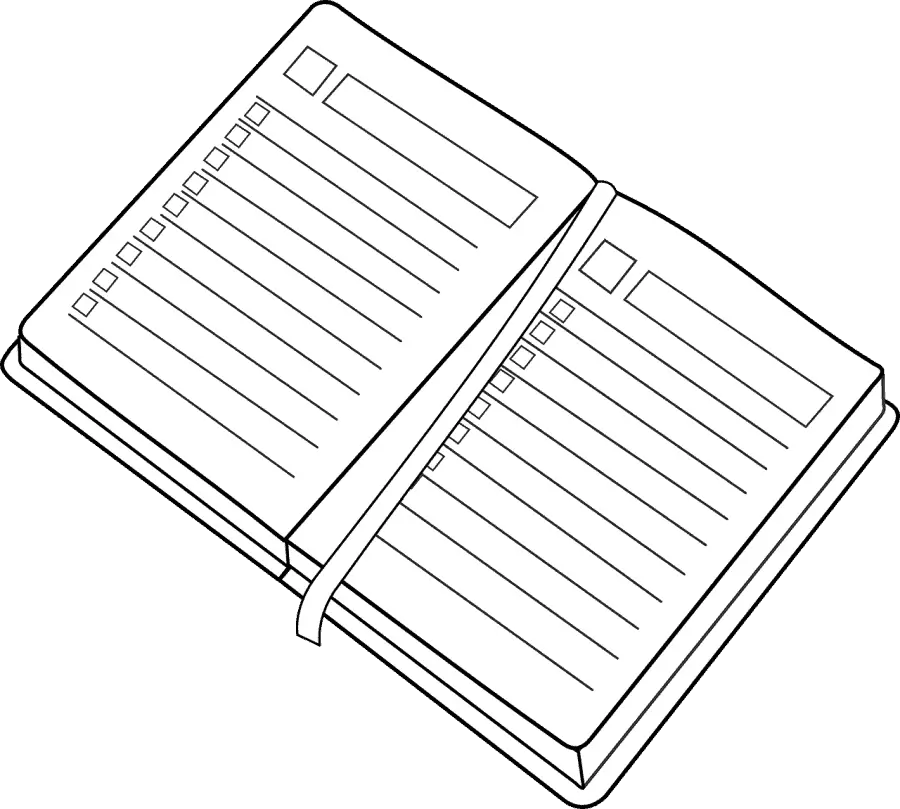
Learning a new language is a daunting task. The path from learning your first words to achieving fluency is not only long and difficult, but also quite varied. There are lots of different ways to approach learning a language. This is why creating good language learning goals can be the key to success in your language learning journey.
A good language learning goal must be SMART (specific, measurable, attainable, relevant, and time-bound) while also taking into account the reason behind learning in the first place. For the best chances of success, language learning should be broken into multiple goals.
Exact language learning goals will differ from person to person. The specific language, desired level of skill, and time frame will all impact goals. Because of this, you need to consider what your language learning goals should be for yourself. This article will explore what you need to know to set good goals for any language learning situation.
Contents
Do You Need Language Learning Goals?
If you want to learn a new language, you may wonder if you even need language learning goals. Is the goal of learning a new language not enough? What benefits does goal setting have?
The truth is, taking the time to develop good language learning goals could be the difference between success and failure when learning a new language.
When tackling a task as large and as vague as learning a new language, setting goals provides two important things:
- Motivation (I address motivation in depth here, also)
- Structure
Goals give you motivation by giving you an object toward which to strive. Think about grades in school. How often was maintaining a particular grade the motivation that made you study for a particular test? Giving yourself a point to reach is probably the best way to get yourself moving forward.
Goals also provide the necessary structure. When setting out to do something as daunting as learning a new language, there are many different approaches and paths.
However, if you have a goal, then you also have an endpoint, which greatly narrows the paths you can take through language learning. After that, all that is left are the steps.
The Qualities of a Good Language Goal
The idea behind setting goals in any area is to push you towards what you want to achieve. However, some goals are better at creating and sustaining motivation than others. Before you explore the best types of goals for language learning, you first need to understand what makes a good goal in the first place.
One of the best approaches to good goal setting is the SMART approach. SMART is an acronym where each letter stands for an essential quality of a good goal. A good goal is one that succeeds in motivating you and pushing you towards success.
For a popular book that deep dives into what makes a goal a SMART goal for students learning just about anything, I recommend The Power Of SMART Goals found here on Amazon.
Once you know the SMART approach to goal setting, you can begin to make language learning goals with a much higher success rate.
Specific
The first quality of a good goal is that it is specific. If a goal is too general, then it does not give you a clear point to work towards. Specific goals spell out exactly what you want to achieve.
In language learning, a common goal is often something along the lines of…
- “Learn to speak French”
- “Learn Russian.”
However, these goals are not specific. At what point would you consider French or Russian learned?
While these goals may represent the underlying idea of what you want to achieve, they are not specific enough to be helpful.
More specific language learning goals would be something such as…
- “Being able to hold a conversation entirely in French”
- “Knowing at least 4000 Russian words.”
With these goals, you know exactly what you hope to achieve, making it easier for you to plan a path to reach that goal.
Measurable

The next quality of a good goal is closely related to being specific. A good goal must be measurable. You must be able to not only tell when you have reached your goal but also be able to measure your progress towards that goal.
Learning a specific amount of words is a good language learning goal because you can easily monitor your own progress through the number of words you have learned. However, being able to hold a conversation in French is not quite measurable. Consider these things:
- How do you define conversation?
- What counts as a full conversation?
To make this goal measurable you could change it to “Be able to hold a 10-minute conversation in French.” Now you know exactly when you have reached your goal, and you can easily track your progress.
Keeping your goals measurable is key to motivation. Being able to track your progress will give you smaller moments of success to sustain and push you towards the end goal.
Attainable
Another quality of a goal that can help with your motivation is keeping your goal attainable. Another way to phrase this would be to keep your goals realistic.
Turning to the example goals, say that you set a goal to learn 10,000 Russian words. This goal is specific and measurable, but it is also so difficult that you will likely get frustrated long before you even get close to this goal.
Most US adults have an active native vocabulary of 20,000 words
Being realistic about what you can achieve will actually help you to do more with your language learning. Having a goal that you can see yourself reaching will prove more motivating than shooting for the stars with the biggest goal possible.
Setting such goals can even be stepping stones, leading to larger, similar goals.
Relevant
For a goal to be relevant, it needs to be customized to your specific needs. Creating a relevant goal for language learning comes largely from why you want to learn the language.
- If you are learning a language because you want to be able to speak it, then a goal of learning how to spell your new words is probably not relevant.
- If you are learning to speak a language, then you probably want to keep your vocabulary learning focused on words you will actually use in conversation.
Relevant goals should say things like “Learn vocabulary that will help me communicate on my trip to Italy” rather than simply “Learn any 1000 Italian words.” Your goal itself does not necessarily need to spell all of this out, but it is vital to keep relevancy in mind as you begin working towards your goal.
The more relevant your goal is- the more it works for you! And the more successful you’ll be in your target language progress!
After all, something feeling relevant makes it seem far more important and worthwhile, meaning a better chance at motivating yourself to keep going.
Time-Bound
The final quality of a good goal is that it has a time limit. Time boundaries force you to plan steps to meet your goals. They are the instigator of practical action in the world of goals.
The goals:
- “Be able to hold a 10-minute conversation in French”
- “Learn 4000 Russian words”
would be improved if you added time limits. Therefore, they should say something like…
- “Be able to hold a 10-minute conversation in French by my summer trip to France”
- “Learn 4000 Russian words in 6 months.”
People have a tendency to push the deadlines on their goals. Working a time limit into the goal itself helps to stop your inner procrastinator.
When setting these time limits, remember that your goal still needs to be attainable. Be realistic about the time needed as well as the goals themselves.
Language Learning: Big and Small Goals Approach

As previously stated, learning a new language is a huge task. Because learning a language takes a significant amount of time and involves many individual learning components, a single language learning goal is typically not enough to adequately capture the task.
There are really two types of goals that should be in your language learning plan: long-term goals and practical goals.
A Big Goal
This is the endpoint on your language learning journey and should be the first language learning goal you create. Your long-term goal should:
- Have a fairly large time frame
- Describe what you will need to achieve to consider the language learned
Even though this is a larger overall goal, it still needs to meet the SMART requirements for the best results.
Long-term goals establish where you want to end with your language learning journey. You should only have one long-term goal. Making this goal first is important because it forces you to think about why you want to learn a language and how you hope to use it.
A good long-term goal for language learning would be one of the SMART goals, such as “Be able to hold a 10-minute conversation in French by my summer trip.” This goal is specific, measurable, attainable, relevant, and time-bound, but it does not quite tell you how to get there.
Smaller Goals
Creating a single long-term goal is an essential first step, but after that, you need to create smaller goals that will give you steps with which to reach your long-term goal. These goals should be practical and habitual items that will help you achieve your long-term goal.
For instance, a good practical goal might be to study your new language for thirty minutes a day or to learn 5 new words every day. Practical goals essentially give you a daily to-do list with which to reach your big goal. They can be more flexible, and you need several to cover all the things language learning requires.
Unlike the long-term goal, you should actually have multiple practical goals. Every day will not be the same, and having different practical goals to choose from can keep you from becoming frustrated. Your practical goals could be to do one of the following every day:
- Learn 5 new words
- Practice speaking for 15 minutes
- Go over an interesting concept in your textbook
Language learning requires continuous practice. By making your daily practice a goal in and of itself, you give such practice a sense of importance and achievement that will help you feel accomplished as you work towards the bigger goal.
Language Learning Goals: Common Mistakes

Knowing what makes a good language learning goal is not always enough. It also helps to know what makes a goal more likely to fail.
The good news is that there are some common mistakes you can look out for. Below are some of those common mistakes that you should avoid when setting language learning goals.
Overlapping Goals
While this may not be a problem for some people, there are those who learn multiple new languages. If you are trying to learn more than one new language, you will likely have more success if you approach each language separately.
If you are trying to learn both Japanese and French, do not set long-term goals that will require you to study both languages at the same time. You will learn more in a shorter period focused on just one language than you will in a longer period trying to juggle multiple languages.
Overlapping goals can also mean having more than one long-term goal. If you are both trying to learn 4000 words of German and pass a German language test, your attention may become divided. You can have smaller goals under your long-term aim, but giving yourself multiple long-term goals only hurts your focus.
No Milestones
People often overestimate their ability to stay motivated when starting a long-term task. People begin learning a new language with a lot of enthusiasm, but it is likely that enthusiasm will begin to fade long before they reach their goal. One of the things you can do to hurt your ability to achieve your long-term goal is forgetting to use milestones.
Milestones are simply progress markers that show your level of achievement towards your larger purpose. If your goal is to be able to have a 10-minute conversation in French, you can break this into milestones by aiming for different lengths of conversation, such as:
- A 2-minute conversation
- A 5-minute conversation
- An 8-minute conversation
- A 10-minute conversation
In fact, if you feel the need to do so, you could even create a milestone for every minute.
Milestones show people that they are making progress even when they feel far away from their larger goal. They are a way to recognize the hard work you put in along the way.
Milestones give you a feeling of success on the long road of learning a language, and that feeling is essential to helping you continue when things get tough.
Too Easy

While your goals should be attainable and realistic, there is equal danger in making them too easy. Remember that the purpose behind setting language learning goals is to give your studying focus by providing an end for which you can strive. If that end is too easy, then your goals will not push or motivate you.
What exactly is too easy will differ from person to person, but in general, if you have to put in very little time and effort, then your goals are probably too light. Only needing to study your language once a week is a likely sign that you need to be tougher on yourself.
Fortitude –
mental and emotional strength in facing difficulty, adversity, danger, or temptation courageously:
Dictionary.com
You may think that easy language learning goals will make you feel successful, but the opposite is true. If you reach your goals with no effort, then they will not feel important, and you will not feel a sense of satisfaction.
This leads to decreased motivation that will kill your language learning just as goals that are too hard do.
Goal setting is about finding a balance with what you can achieve. They should be hard enough to push yourself and provide a sense of accomplishment upon completion, but not so hard that they cause nothing but frustration and apathy.
Finding the right balance may take some trial and error, but it is worth it for the motivation and accomplishment!
Best Language Learning Goals for Different Needs
This article has spent a lot of time discussing what makes a good goal, but what if you have no idea where to start with your language learning goals?
While the specifics of any goal depend on your individual circumstances, here are some general goal suggestions for various language learning situations.
Language Learning for Communication
What is a good goal if you want to learn a language for communication? This would be learning a language because you plan on traveling to another country, want to be able to talk to someone in their native tongue, or communicate for work reasons.

When language learning for communication purposes, making yourself understood is the primary goal. A good long-term goal for this type of language learning would be being able to have a conversation for X number of minutes by a certain day.
Smaller goals for language learning for communication could be things like:
- Mastering common phrases and questions
- Achieving clear pronunciation
- Understanding the language when listening
Language Learning for Fluency
If you are learning a language because you want to be fully fluent, you will need to set much stricter and more varied goals. Picking a long-term goal that would accurately measure fluency can be hard because fluency implies a wide range of knowledge, but language tests offer a potential solution.
A long-term goal for fluency would be passing a particular language test by a certain day. It could also be a more extensive communication goal, like being able to have a 30-minute conversation on a specific subject.
In general, if you wish to achieve fluency, your long-term goal needs to have a larger time frame and be somewhat harder.
Because fluency involves such a variety of knowledge, your small-term goals need to reflect this. Small term goals for fluency could be:
- Learning X number of vocabulary words
- Knowing grammatical forms such as cases and conjugations
- Practicing pronunciation and speech
- Understanding the language when listening
- Being able to write and read some
Language Learning for Knowledge
Sometimes you want to learn a language without any particular purpose. After all, it has been proven that language learning is good for your brain. If you are learning a language for the sake of knowledge alone, then your goals can possibly be less rigorous and more specific than with other purposes.

Some examples of long-term goals for language learning just for knowledge are learning X number of words in a certain amount of time and being able to pass a language test by a certain day.
Smaller goals for this type of language learning include:
- Learning X number of new words a week
- Practicing reading and writing
- Listening to media in the target language
- Looking at a different grammatical concept each week
Language Learning for Reading
Some people may want to learn another language with the sole goal of being able to read in that language. This may be because someone wants to read a religious text in the original language or because they want to be able to translate something. Either way, language learning for reading requires strikingly different goals.
Some languages learned for religious or historical purposes are:
- Ancient Greek
- Ancient Hebrew
- Latin
- Arabic
Long-term goals for this type of language learning could be being able to translate a particular book or being able to read X number of pages in X amount of time.
In general, language learning goals that are focused on reading should have longer time boundaries as reading requires a higher level of language knowledge in most cases.
Smaller goals for language learning with reading will be much more focused on grammar and vocabulary. They could include:
- Learning X number of words a week
- Translating X number of sentences a week
- Going over X grammatical concepts a week
- Writing X number of sentences a week
Giving Your Goals Structure
Once you have goals, you need a plan to achieve them. This article has already talked about how having smaller goals and including milestones can help with this, but now it will discuss how you can turn your goals into a daily structure.
Remember, a proper structure can mean a great deal when it comes to language learning. After all, proper structure is often the first step to doing something over a long period of time.
Make a Schedule
Most people are far more likely to do things when they block out time to do them rather than simply hoping they get to them at some point. People block out time to exercise, watch TV, and hang out with friends, so why not take this same approach to learning a language?

Select a block of time in your weekly schedule to study your new language. It does not have to be every day, though I recommend it (even if it’s just a 15-20 minutes). Being consistent and practicing on a regular schedule is key.
Mark this time block on your calendar just as you would any other activity or appointment. With a designated time, you will find yourself regularly studying and making steady progress with your language learning.
Make a Lesson Plan
Structuring your language learning should include not only when you plan to study but also what you plan to study as well. Your smaller goals can provide the basic outline for your lesson plan.
Making a lesson plan does not mean creating a detailed day by day outline of everything you will learn. It simply means assigning different areas of language learning to different days on your schedule.
- One day can be for learning new vocabulary
- Another day can be for going over grammar
- Another can be devoted to practicing speech
Planning what you will focus on during each study session beforehand will improve your efficiency quite a bit. If you do not have to spend time wondering what to study, then you will spend far more time actually studying.
Lesson planning will both increase your productivity and help prevent frustration.
Arrange for Progress Checks

Having the goal of holding a ten-minute conversation is great, but you can study a language for 6 months on your own and have no idea how close you are to achieving that goal.
In the same way, you can learn 5 new words every day, but it is incredibly difficult to know how much of that you retained if you are relying solely on self-study.
At the end of the day, language is a form of communication. If you truly want to achieve your goals, you need to be aware of your progress, and in language learning, that almost inevitably means finding some time to practice the language.
One of the easiest ways to incorporate progress checks into your schedule is by hiring a tutor. A tutor can not only provide extra help, but they can also give you a way to easily monitor your progress. Even meeting with a tutor just once a month can help you get a better idea of where your language skills are.
One of the best and most cost effective ways to use a tutor is to hire one online. You can choose from the best around the world without having to live in their vicinity. italki is a site that I recommend for anyone wanting the one on one experience of a tutor.
If you are truly devoted to a self-study approach, finding someone to practice your language with is essential. Luckily, the world is highly interconnected through the internet, so there are many online language learning groups that can help you practice and check your progress.
Final Talking Point on Language Learning Goals
Learning a new language is a mammoth goal, but if you take the time to break that goal into smaller, more specific, and timely goals, then you are well on your way to getting there! Don’t forget: Be SMART!
Good goal setting is an essential part of any large undertaking, and it can make your language learning experience far smoother.
Sources:
https://doi.org/10.1007/s11031-008-9085-1
https://psycnet.apa.org/buy/2000-07799-008
https://doi.org/10.5465/amr.1983.4284597
